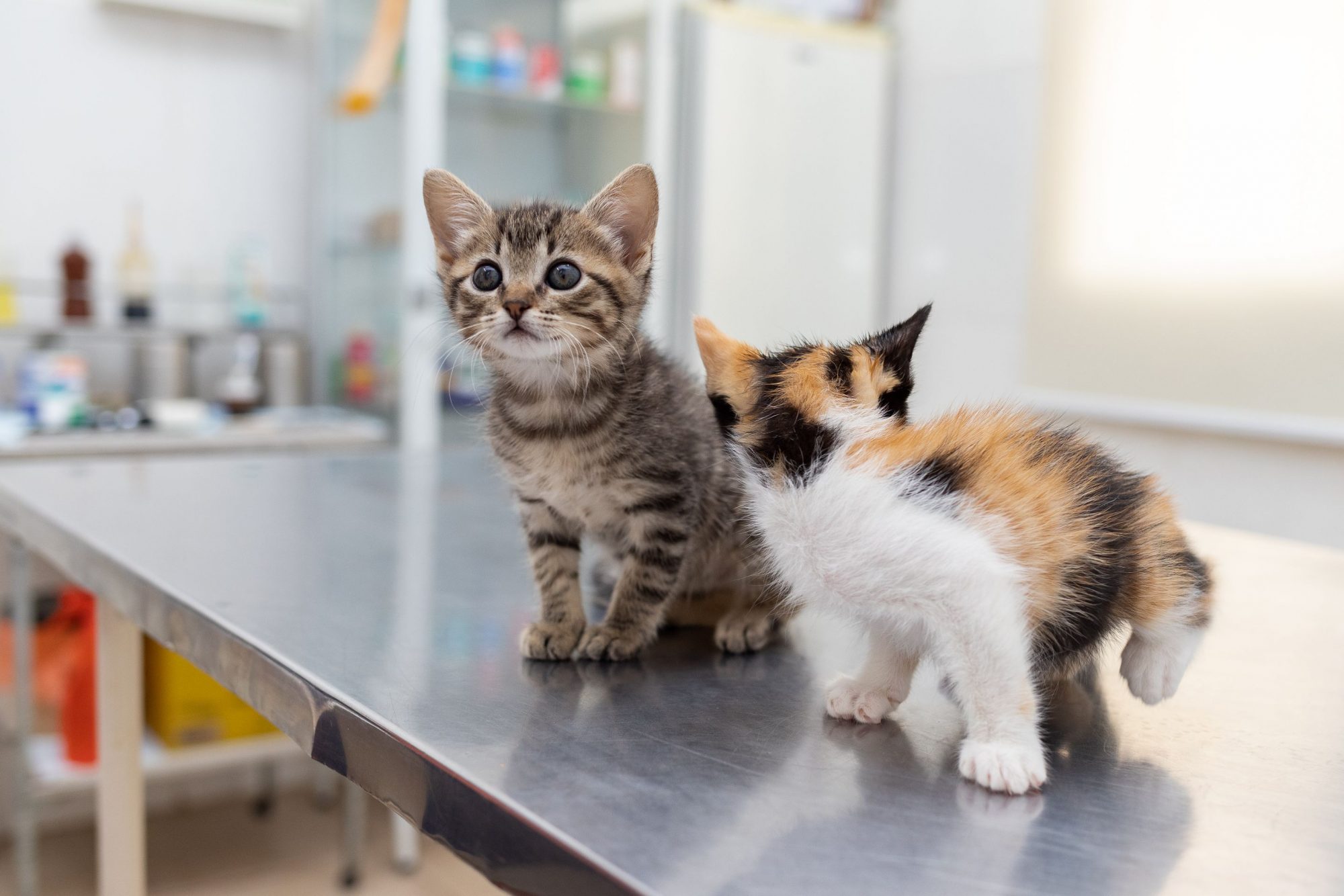Rabies Vaccination for Puppies and Kittens: What You Need to Know

While almost everyone has heard of rabies as a disease, most of us have some dramatized concept of what it actually is. In honor of World Rabies Day on September 28, Leon Valley Veterinary Hospital would like to share a little bit about this devastating disease and why rabies vaccination for puppies and kittens (and adult animals as well) is so very important.
Rabies as a Disease
Rabies is an almost-always fatal disease caused by a virus in the Lyssavirus family. It can infect most mammals, including humans, earning it the title of zoonotic (able to transmit between humans and animals).
The rabies virus depends on a host animal for its survival―it’s not very hardy outside of a body. Rather, it is spread through direct contact between individuals. It is most often spread through a wound that comes into contact with the mucous membranes of the infected animal; typically a bite.
When rabies exposure occurs, the virus enters the tissues of the new host, attaching to local muscle cells for a few days before entering the nervous system. The virus will make its way up to the brain through peripheral nerves over the course of a month or more. Symptoms do not typically occur until the virus reaches its final destination in the brain.
Rabies symptoms typically occur in the following stages:
Prodromal Stage―Initially the host will often exhibit a change in personality. Changes in the voice may also occur. During this time, it is common for the original site of infection to feel irritated, and animals may lick or scratch at the location.
Excitative Stage―After the prodromal stage, the infected individual often shows signs of being “mad.” This stage often includes hallucinations and aggression.
Paralytic/dumb Stage―After the excitative stage, which may last a few days, the infected animal becomes weak as the muscles are affected throughout the body. Drooling occurs as the animal loses the ability to swallow, and eventually, the muscles that control breathing become paralyzed, resulting in death.
Rabies is virtually always fatal unless treated in the very early stages, making it a major health concern worldwide.
History of Rabies in Texas
Rabies has existed in Texas since at least the mid-1800s. In 1884, Louis Pasteur developed a rabies prevention vaccination. The Texas State Health Department began giving post-exposure treatments to individuals in 1903, but even today there is only a short window in which this treatment is effective against the rabies virus spreading to the brain.
In the meantime, though, rabies in the wild animal population continued to spread. By the mid 1940s, it was endemic in the Texas fox population. During this time, veterinarians began advocating for preventive rabies vaccination in dogs, however this didn’t help the stray dog population and wild animal-to-human exposures. As control measures were taken in terrestrial species, rabies began to rise in the bat population.
Aggressive vaccination and wildlife control measures have helped, but we still do see rabies in the state. In 2020, there were 574 positive cases of rabies in skunks, bats, raccoons, and foxes. There were also cases in eight dogs, twenty-four cats, one sheep, eight cattle, one horse, and two goats. Thankfully, there have been no human rabies positives in Texas since 2009.
Rabies Vaccination for Puppies and Kittens
While rabies is much less rampant in Texas and throughout the United States than it has been in the past, it is still very much a real danger. Much of our success in somewhat controlling this devastating disease has been as a result of vigilant control measures.
As pet owners, it is our responsibility to help prevent rabies spread. The State of Texas requires all dog and cat owners to keep their pets updated on preventative vaccinations. At our hospital, rabies vaccination is a key part of our pet wellness practices.
For puppies and kittens, rabies vaccination is a key part of their wellness visits as well. Initial vaccination during their vaccine series can provide important protection for them and your family.
It’s easy to do your part to keep rabies spread down in our state. In honor of World Rabies Day, give us a call this month to be sure that your pet is up-to-date on preventive vaccinations.


